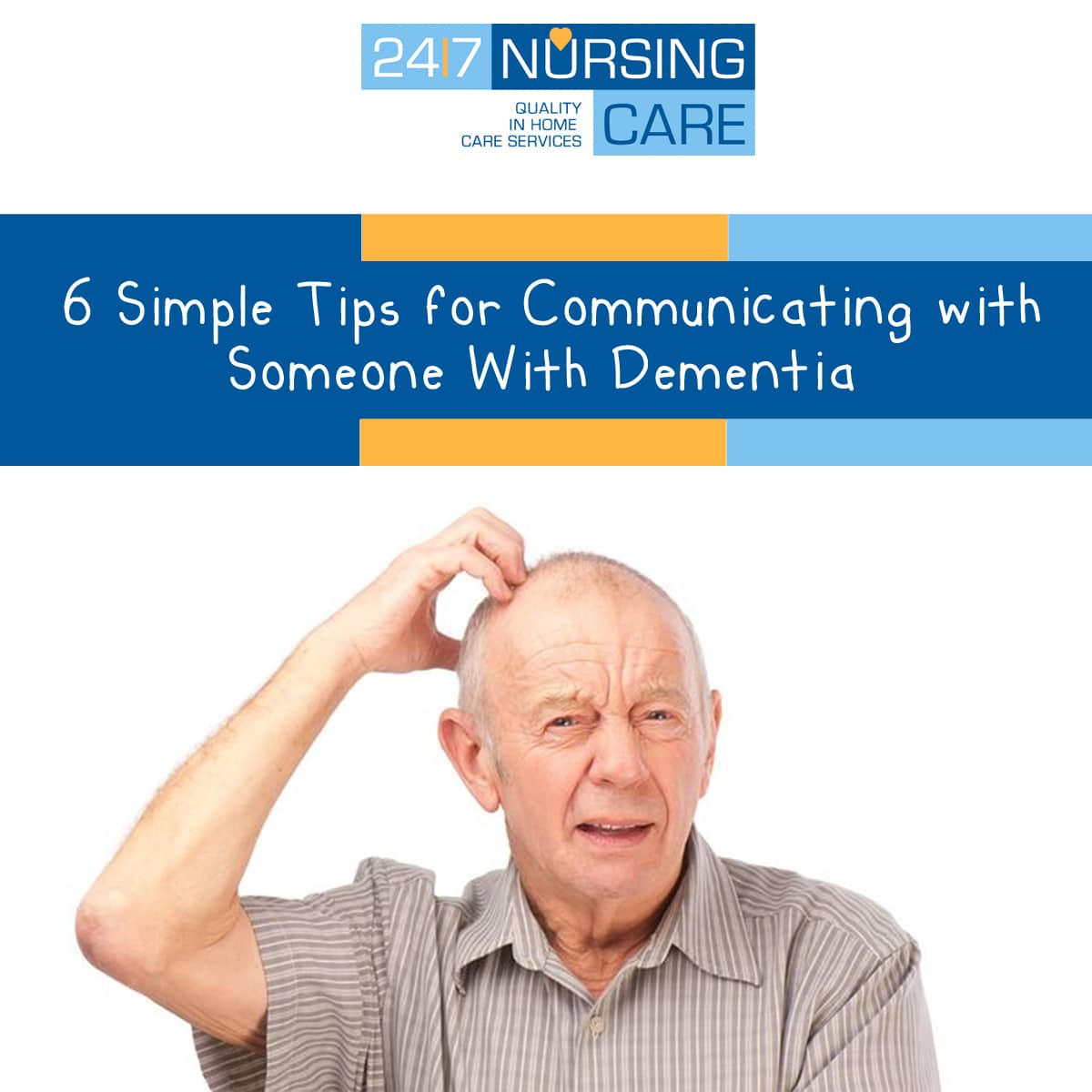6 Simple Tips for Communicating with Someone With Dementia
Whether it’s a family member or close friend, no matter who you are, chances are that at some point in your life you will come across someone with dementia. An estimated 5.4 million Americans suffer from dementia. Although the brain disorder is commonly thought of as one disease, it is actually a group of diseases, which affect people in many different ways. One such way is that it gradually diminishes a person’s ability to communicate.
This diminished capacity to communicate can be downright frustrating for all parties involved. Communication with someone with dementia requires patience, understanding, and great listening skills.
Here are 6 simple tips that will make even the most basic interactions more effective and enjoyable for everyone.
1. Be Patient and Listen Closely.
Let the person know you are listening and care what they have to say. If he or she seems to be searching for the right word(s), look for clues and offer verbal guesses as to what the person might be saying. However, make sure not to interrupt her/him.
2. Make Eye Contact and Smile.
Although someone with dementia may not understand what’s said, they can always read your body language and tone of voice. This includes the look on your face, whether or not you’re smiling, voice level, and body position. According to Psychology Today, 55% of communication is body language, 38% is the tone of voice, and 7% is the actual words spoken. It’s also important to focus on feelings and not facts. Emotions conveyed can be more important than words used.
3. Speak Clearly.
Speak in a gentle, relaxed tone, using simple sentences to allow the person to digest what you are saying. Make sure not to give the person too many options. For someone with dementia, being presented with too many choices can be confusing. Offer only 2-3 options and give them time to make a decision.
4. Avoid Criticizing and Arguing.
Just let it be. If a person with dementia says something you disagree with, avoid arguing with her/him. Instead of correcting the person if you think she or he is in the wrong, listen and try to find the meaning behind what was said. Repeating what you heard is a simple way to help clarify the thought behind the words spoken.
5. Recognize Signs of Distress and Be Proactive.
Recognizing signs of distress in a person with dementia is key to helping them out in a crisis. For example, if a person looks lost, it will probably be written all over her/his face. The individual may have forgotten where they live, so don’t hesitate to ask if their address is written on something in their purse or bag.
6. Observe Changes and Offer to Help According to Their Current State.
It’s important to understand that for some people with dementia, each day is drastically different than the day before. Today the individual may not need the same thing as he or she did yesterday. The key is to adjust to their needs accordingly and be willing to help with what they need today.
24-7 Nursing Care is a leading provider in in-home nursing care and companion services in Miami. All of our caregivers are licensed or certified by the State of Florida, with level 2 background screening on file with the State of Florida. Our skilled nurses and staff specialized in psychiatric nursing care provide the proper care and treatment needed for those suffering with dementia. Don’t hesitate to contact us, as we are available and can be reached by phone 24 hours a day, 7 days a week.
References:
Facts About Dementia: Overview. (n.d.). Retrieved March 18, 2016, from http://www.dementiacarecentral.com/aboutdementia/facts
Tips for Business Organizations: Creating a Dementia-Friendly Environment. (2015, December 8). Retrieved March 18, 2016, from http://www.actonalz.org/sites/default/files/documents/DFAW Tips for Businesses.pdf
Thompson, J. (2011, September 30). Is Nonverbal Communication a Numbers Game? Retrieved March 18, 2016, from https://www.psychologytoday.com/blog/beyond-words/201109/is-nonverbal-communication-numbers-game




